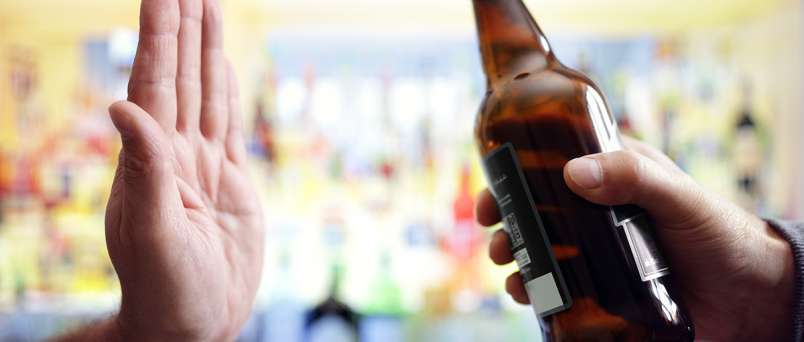How Do I Help A Recovering Alcoholic?
Welcome to the topic How Do I Help A Recovering Alcoholic?
An alcoholic’s interpersonal connections are particularly impacted by addiction because of the pressure it places on them. Every element of one’s life, including relationships, is increasingly dominated by the addict’s addiction. Every relationship between the addict and their loved ones will ultimately be affected by their addiction in one way or another.
Detoxification and rehabilitation are not the sole steps in a person’s journey toward sobriety; they are only the beginning. Addiction recovery is a lifetime journey since remaining sober requires a long-term commitment and a strong desire to succeed. To aid those recovering from addiction, it is crucial that their loved ones support and encourage them to continue living a drug-free lifestyle.
Uncertainty over what to do is a common problem for family members and friends. They’d want to assist, but they have no idea where to begin. In particular, people who have previously supported addictive behavior should be aware of this. Every addiction is unique, although certain fundamental principles may be used in the majority of cases.
There is a lot to understand about drug dependence.
Experiencing dread, anxiety, and fury is very natural. The more you know about a chronic condition, the more equipped you will help a loved one with it. Educating oneself will benefit both you and them. Discover more about drug addiction, mitigation, treatment, and rehabilitative services. Now is not the right time to scold your loved one on how they could’ve made smarter life decisions so that their life wouldn’t have taken this deep a plunge.
The optium way to support your loved one obtain therapy for their addiction is to acquire expert advice. You may find spokespeople and coaches through various means in your area, including Assistance in Recovery. Your loved one’s therapy choices can also be explained in detail by these professionals, many of which entail the participation of family members and others who are encouraging.

Practice Active Listening.
A great deal of physical, mental, and emotional processing needs to be done by those in recovery. It’s possible they’re thinking about the future or trying to make up for the past. A listening ear may be quite beneficial as a sober alcoholic has so much to deal with.
You may have your thoughts regarding their recovery, especially if you were profoundly affected by their alcoholism during their early years. If your loved one is still in the early stages of sobriety, navigating these feelings can be difficult. Luckily, there is a broad range of options for outside assistance. Meetings such as 12-step meetings and therapy sessions can be excellent venues for dealing with these emotions.
Family therapy sessions can be particularly beneficial for those in the early stages of their recovery. You and your loved one may be able to deal with the past in a more natural way in the future if you wait long enough.
Encourage your loved one to participate in purposeful and organized activities.
Everyone craves a feeling of purpose and significance in their life. Being involved in a cause or humanitarian activity may give one a feeling of direction and purpose in their life.
Co-occurring disorders can disrupt such activities. Your loved one’s life may have been flipped upside down by addiction or another form of mental illness. Your loved one’s ability to maintain sobriety and control their mental health will improve if they are able to regain and establish these important activities.
Supporting a loved one’s participation in creative pursuits can be as simple as
- Enquiring of a loved one: “What are the things you enjoy doing that have a personal significance to you? What types of roles do you envision for yourself in the future?”
- Insisting on your loved one’s immediate return to their previous activities, such as school or employment, rather than waiting until other issues are “fixed.”
- Reassuring your loved one that despite their co-occurring disorders and any prior disappointments, they can achieve their most significant and meaningful objectives
Don’t Have Skyhigh Expectations.
Loved ones of addicts long to see them sober and clean. In addition, there is a prevalent perception that addiction is the root of all the issues in an addict’s personal and professional life and that simply going to recovery would result in a “cure.” Regrettably, none of these statements are accurate. Many family members and friends are frustrated by the progress a recovering addict has made or hasn’t made. During a relapse, this is especially true. Recovering addicts might detect disappointment, making them feel hopeless and more prone to relapse, so it’s best not to disappoint them.

Provide emotional and social assistance to them
Everyone in a close-knit family is affected by high levels of conflict. Stress within the family can also lead to relapses of the mental health problem, drug use disorder, or both for those with co-occurring disorders. Conversely, access to social support may lessen anxiety and improve coping skills, which is beneficial to everyone involved.
In order to alleviate stress and provide comfort, use the following methods:
- Communicating effectively to reduce tension and increase positive support
- Resilience in the face of difficulties
- The act of expressing your love for one another
- Spending quality time together in a way that benefits all parties
Be prepared for long-term recovery support.
To be prepared for the inevitable ups and downs of transition, keep this in mind: only about a third of persons in recovery who had been sober for less than a year remained abstinent during a multi-year study of people with addiction. Within the first year of treatment, two out of three recovered addicts are likely to relapse. There is a decreasing probability of relapse the longer you remain sober, and relapses do not indicate failure. To put it another way, they point towards a need for a change in treatment strategy.
Have any questions regarding the topic How Do I Help A Recovering Alcoholic? Feel Free to comment below.
Also Read: HOW TO SPOT: AN OPIOID ADDICTION IN 2022

